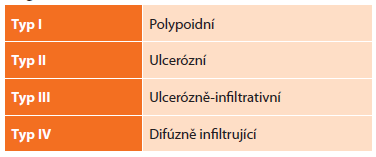Abstract
Although the incidence of gastric cancer is decreasing worldwide, the number of esophagogastric junction and upper-third gastric carcinomas is gradually growing. This is due to an increasing incidence of reflux esophagitis with Barrett’s metaplasia and successful eradication of Helicobacter pylori infection. Treatment options for these tumors include proximal gastrectomy. The only currently accepted indication for proximal gastrectomy is early gastric cancer with no preoperative evidence of lymph node involvement. In Western countries, however, advanced gastric cancers are treated using this method as well in spite of the above recommendation. Oncological radicality is a widely discussed issue. If R0 resection and at least D1+ lymphadenectomy are achieved in proximal gastrectomy, the overall survival is comparable with total gastrectomy in early gastric cancers. Recurrence rate, nevertheless, remains higher for proximal gastrectomy.

